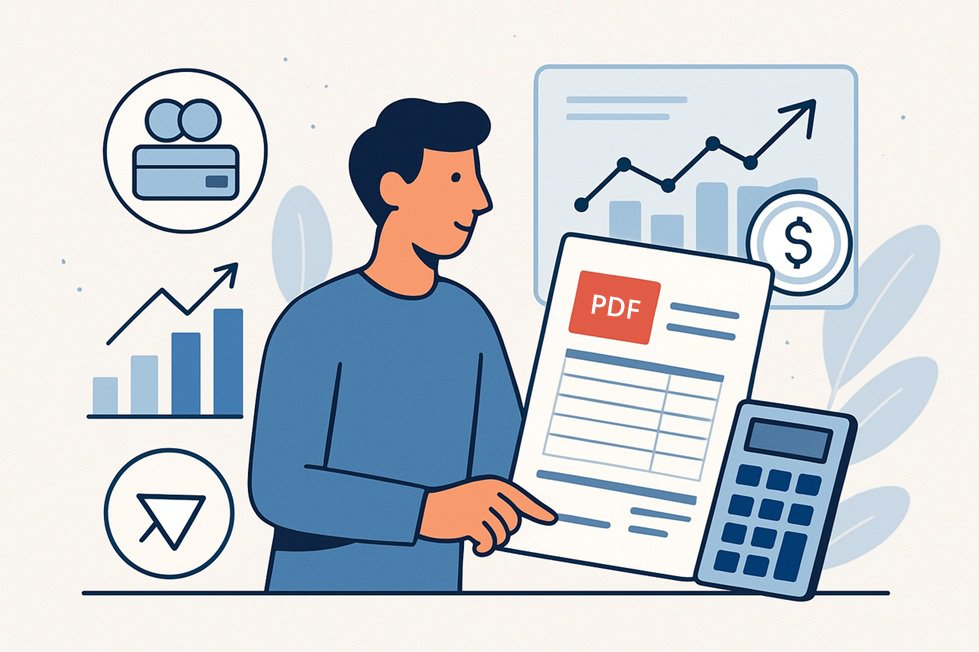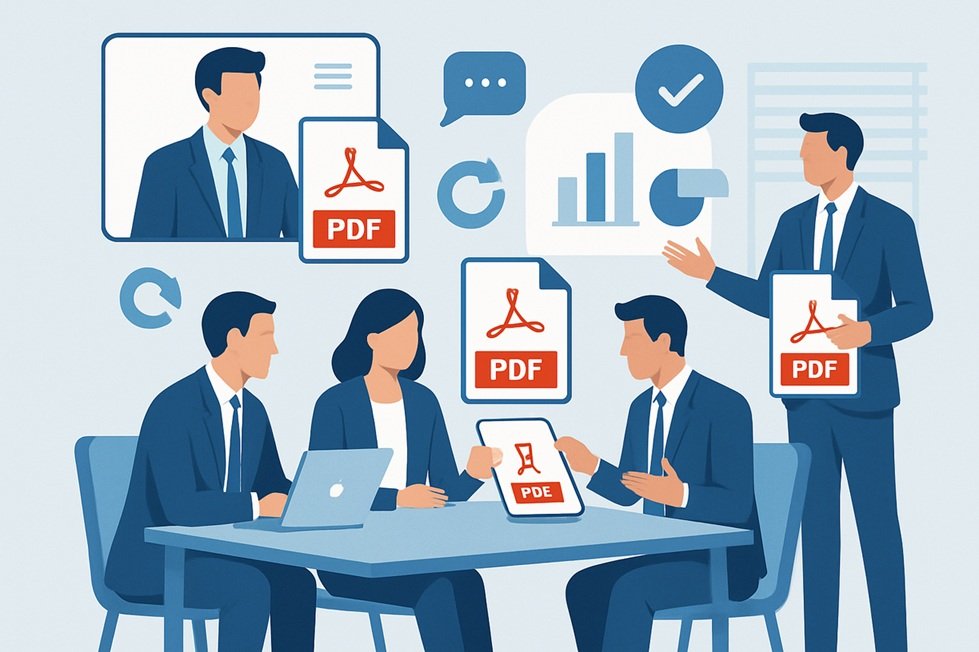Introduction
When you’re running a small business or working as a freelancer, invoicing isn't just a formality — it’s the core of your financial workflow. It tracks your revenue, ensures timely payments, and communicates your professionalism to clients. Yet, despite its importance, invoicing often ends up as a disorganized task, done last-minute using editable files or inconsistent spreadsheets.
The solution? PDFs.
Using PDFs for your invoices ensures consistency, security, and compatibility — three things every small business needs to thrive.
Why PDFs Make a Difference in Invoicing
Let’s be honest: a well-crafted invoice is often the final impression you leave with a client after completing a project. If it's visually messy, poorly formatted, or difficult to open, it could undermine the quality of the work you've delivered.
"An invoice is not just a request for payment — it's part of your brand."
PDFs maintain layout integrity across all devices, meaning your fonts, logos, and tables won’t shift depending on what software your client uses. This consistency projects credibility — whether you're billing for a $50 logo or a $5,000 marketing strategy.
A Professional Format that Reflects Your Brand
Consistent visual presentation
- Your invoice will look the same on desktop, mobile, or print.
- Fonts, images, and spacing are preserved — no matter the device.
- Supports branded elements like colors, logos, and watermarks.
Templates save time
Once you’ve built a PDF invoice template, you can reuse it for every client — just plug in the new project details, update the totals, and you’re ready to send. Many freelancers and small teams use lightweight tools (or even Google Docs + PDF export) to quickly generate polished, repeatable templates.
Simple Distribution and Archiving
One of the key strengths of PDF invoices is their portability. You can attach them to emails, store them in cloud folders, or archive them in bookkeeping software without worrying about compatibility.
- ✅ Lightweight and fast to upload/download
- 📧 Perfect for sending as email attachments
- 📦 Easily archived for tax or audit purposes
Plus, most clients are already used to receiving invoices as PDFs — so you’re aligning with expectations.
Built-In Security and Legal Validity
For freelancers and SMEs working with confidential information or regulated industries, invoice security can’t be overlooked. PDFs offer layers of protection that go beyond other document types.
Key security features
- 🔐 Password protection to prevent unauthorized access
- ✍️ Digital signatures that verify authenticity
- 🚫 Restricted editing and copying for finalized invoices
These features give both you and your clients confidence that the document is tamper-proof.
Faster Payments with Embedded Links and QR Codes
Today’s PDF tools support interactive elements that make paying invoices even easier.
You can now insert:
- 🔗 Clickable links to PayPal, Stripe, or your payment platform
- 📱 QR codes for mobile payments
- 💬 Smart footnotes with payment terms, due dates, or instructions
By reducing friction in the payment process, you're more likely to get paid on time — or even early.
Organization and Payment Tracking
Without a solid invoicing system, tracking unpaid bills can quickly become chaotic. PDFs offer simple but powerful ways to stay on top of your financial records.
How PDFs help you stay organized
- 🗂️ Create a folder system by client, month, or project
- 📅 Use consistent naming conventions:
client-name_invoice_YYYY-MM-DD.pdf - 🔍 Make files searchable by adding metadata (like invoice numbers or tax IDs)
If you scan receipts or export bank statements, those documents can be stored alongside invoices in PDF format — creating a central archive for all things finance.
Automating Your Invoicing Workflow
As your business grows, automation becomes essential. Fortunately, PDF-based invoicing integrates with most workflow tools:
- 🤖 Generate invoices automatically from project completion
- 🧾 Use tools like Zapier or Make (Integromat) to turn form submissions into PDF invoices
- 🔁 Create recurring invoices for retainer clients or subscriptions
"Time saved on repetitive admin is time gained for strategic work — automation lets you scale without burning out."
Even simple actions like converting Gmail threads to PDFs for backup can streamline your client communication records.
Best Practices for PDF Invoicing
Here are a few practical tips to ensure your PDF invoicing system works for you:
Do
- Include your business name, contact info, and tax ID
- Clearly itemize your services and rates
- Specify payment due dates and accepted methods
- Store backups securely, using cloud platforms with encryption
Don’t
- Rely on editable formats like Word for final invoices
- Send invoices without double-checking totals and details
- Leave out payment terms — always be clear about expectations
Final Thoughts
PDFs are more than a convenient format — they’re a foundation for professional and sustainable financial communication. For freelancers and small business owners, PDFs help you project a polished image, get paid faster, and stay organized with less effort.
They bring structure to a process that often feels chaotic and manual. And in a world where first impressions matter — and final documents even more — that structure makes all the difference.
Ready to upgrade your invoices?
Start using PDFs for more consistency, better security, and fewer payment delays.




